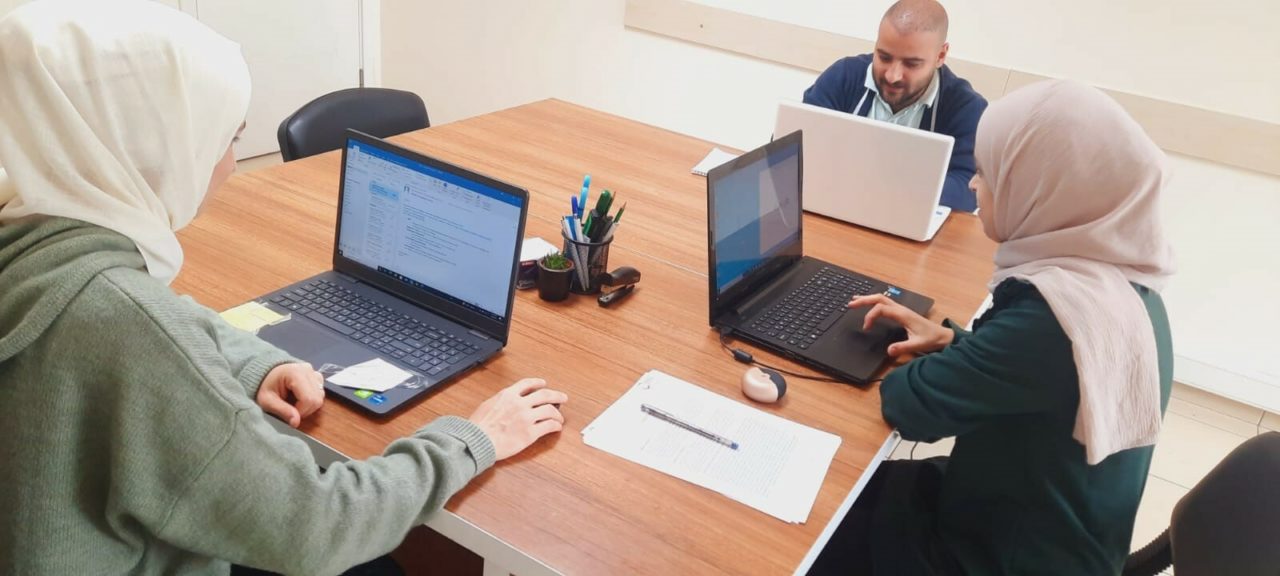 Making yourself heard and feeling mentally strong
Making yourself heard and feeling mentally strong
Promoting resilience together and creating new prospects for the future
Together with her four siblings and her mother, eight-year-old Fatema lives in the Atmeh refugee camp, the largest camp for displaced persons in north-west Syria. Her mother has become the sole breadwinner after losing her husband in the war. Despite these heavy blows, her mother is now able to find new hope: By seeking psychological help, she has learned to better cope with such crises and to develop suitable problem-solving strategies. "I am so happy that our mum is laughing a lot with us again and often plays with us," Fatema says, beaming with joy. Due to the ongoing war in Syria, there are now very few mental health centres for those who are suffering. The dangerous security situation makes it difficult for them to travel freely and to seek help. In order to reach those affected safely and without obstacles, new approaches to psychological care are more necessary than ever.
Necessity
Providing psychotherapy for traumatised people in Syria
Activity
Arabic-speaking psychologists in Turkey offer online therapy sessions for people with mental health problems in north-western Syria
Countable effort
Number and duration of psychotherapy sessions conducted by the appointed psychologists
Result
The beneficiaries gain new skills and coping strategies for a better quality of life and social participation
Systemic effect
Resilience of civil society is strengthened, its socio-economic integration is encouraged and there is greater awareness of psychosocial issues in the region
Background
11 years of civil war in Syria has resulted in over 6.6 million Syrian refugees worldwide and more than 6.7 million internally displaced persons (UNHCR, 2021). According to recent research, 1 in 10 people in Syria on average suffer from mild to moderate mental health conditions, while 1 in 30 suffer from severe mental illness (WHO, 2022).
Particularly in the north of the country, there is a lack of both treatment centres and skilled staff for those affected, so health workers often perform their services without sufficient qualifications (World Vision, 2021). Thus, it is currently impossible to adequately address the multitude and complexity of medical conditions in Syria.
Strengthening mental health is the basic prerequisite for successfully coping with the consequences of the war in the future. Therefore, a special psychotherapeutic concept is offered here to provide lasting support for people on their path to mental stability.
The good deed
With your good deed, people suffering from mental health problems can be treated in an innovative and professional way. The project is based on internationally recognised quality standards and is implemented in digital form, so that the clients only need a mobile phone and stable internet for the therapy sessions. The digital implementation of the project guarantees their anonymity and eliminates physical barriers. Trained psychologists in Turkey conduct the confidential counselling services using secure online tools in Arabic. The focus is on therapeutic conversations and teaching new behaviour patterns. By applying solution-oriented and practical coping strategies, clients gain a better quality of life and learn to help themselves". Through their newly acquired skills and improved mental health, they contribute to greater social cohesion and the promotion of a more stable civil society.

About Syria
Damascus
Capital
18,275,704
Number of inhabitants
1,265.6
Gross domestic product per capita per year
Rang 150 von 191
Human Development Index
The settlement area around the Tigris and Euphrates rivers is one of the oldest in the history of humankind. Ancient citadels, mosques and baths are characteristic of Syria's unique cultural sites in the north of the country.
About the organization and further information
Association
Deutsch-Syrischer Verein e.V. (DSV)
Website





